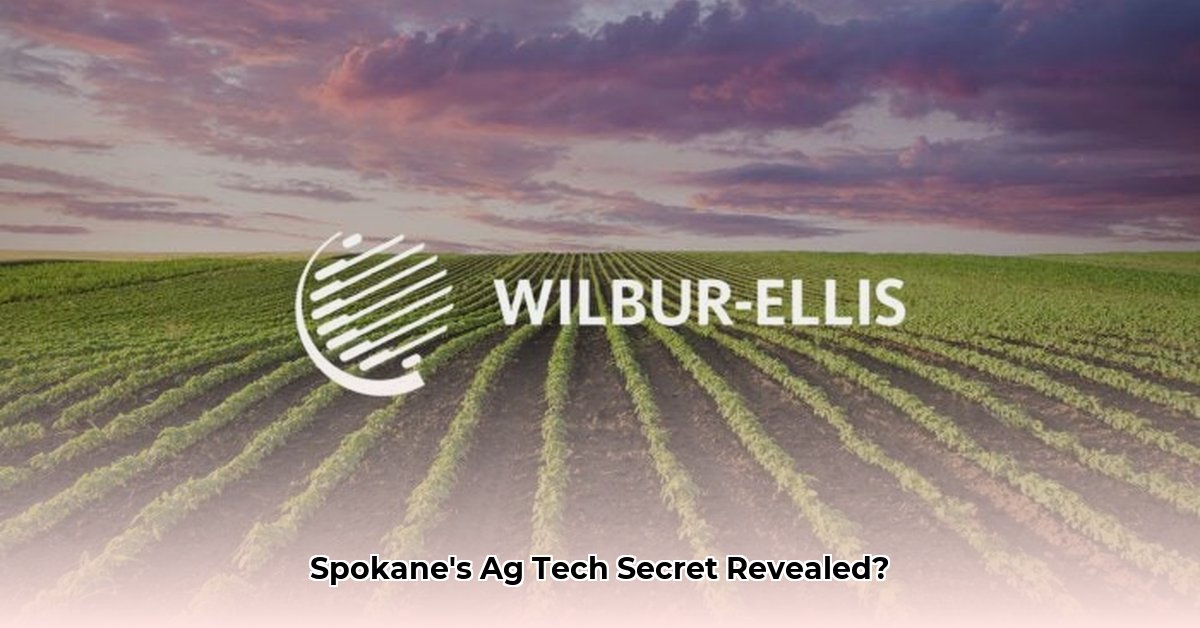
Wilbur Ellis Spokane: A Sustainability Assessment
Wilbur Ellis, with its extensive network of 122 locations nationwide, holds a significant position in Spokane's agricultural landscape. While their commitment to sustainable practices is implied, a comprehensive understanding of their current environmental impact remains elusive due to a scarcity of publicly available data. This case study analyzes the available information, highlights the potential for improvement, and proposes actionable steps for achieving greater sustainability in the Spokane region and beyond. How can Wilbur-Ellis leverage its position to champion sustainable agricultural practices? This is the key question guiding our investigation.
The Data Challenge: A Need for Transparency
The lack of readily accessible data concerning Wilbur Ellis Spokane's sustainability initiatives presents a critical limitation. Key performance indicators (KPIs) such as carbon footprint, water consumption, and contributions to biodiversity are currently unavailable. This opaque data landscape prevents a definitive assessment of their current environmental performance. Such limited information hinders objective analysis, mirroring the inability to evaluate medical treatment success without patient records. Increased transparency is urgently required. What steps can be taken to quantify Wilbur Ellis Spokane's environmental performance and make the data available?
Building a Brighter Future: Leveraging Existing Strengths
Despite the present data limitations, the potential for Wilbur Ellis Spokane to become a leader in sustainable agriculture remains substantial. Their established regional presence and extensive distribution network provide a strong foundation for impactful change. A full commitment to environmentally responsible practices could have a transformative effect on the Spokane agricultural sector. What specific strategies could maximize Wilbur Ellis's positive influence on sustainable farming outcomes?
A Collaborative Roadmap for Sustainable Advancement
Achieving sustainable agriculture requires a collaborative effort from all stakeholders. The following framework outlines actionable steps for Wilbur Ellis, farmers, consumers, and regulatory bodies to promote sustainable practices.
1. Enhanced Data Transparency and Reporting (Wilbur Ellis): Conduct an independent sustainability audit within the next year, publicly disclosing the findings. Implement a system for regularly reporting on key environmental metrics (e.g., greenhouse gas emissions, water usage) within three years. This transparency is essential for building trust and accountability.
2. Farmer Engagement and Education (Wilbur Ellis & Farmers): Initiate farmer education programs, providing training on sustainable farming techniques and technologies (e.g., efficient irrigation, precision application of fertilizers), starting within one year. Partner with farmers to implement pilot projects aimed at demonstrating the efficacy of sustainable practices.
3. Consumer Education and Demand (Wilbur Ellis & Consumers): Conduct consumer research to understand the demand for sustainably-produced agricultural goods. Develop marketing campaigns and educational materials within two years to raise consumer awareness about the importance of sustainable agriculture.
4. Policy Advocacy and Regulatory Alignment (Wilbur Ellis & Government): Engage with local and national government agencies to promote policies and regulations that incentivize sustainable agriculture. Advocate collectively with industry partners for business-friendly policies within three years.
5. Competitive Benchmarking and Collaboration (Wilbur Ellis & Competitors): Conduct a review of competitor sustainability initiatives to identify best practices and areas for improvement, within one year. Explore opportunities for collaboration with competitors on joint sustainability projects, focusing on resource sharing and data exchange. This would build consensus within the industry and achieve a greater impact.
Optimizing Sustainable Agriculture Supply Chains: The Role of ECO ADVANTAGE®
Wilbur-Ellis's ECO ADVANTAGE® system demonstrates a proactive effort towards sustainable agriculture. However, the lack of quantifiable data on its impact limits a complete assessment. We need precise metrics about reduced water and fertilizer usage, improved soil health, and reduced greenhouse gas emissions. Rigorous independent studies are crucial to validate its effectiveness.
The system's success hinges on farmer adoption and understanding. Comprehensive training programs can ensure proper implementation and maximize the system's benefits. Additionally, comparative cost-benefit analyses alongside long-term research will clarify its overall economic and environmental efficiency.
Recommendations for Future Action: A Path Forward
Three pivotal points emerge for Wilbur-Ellis to optimize their contribution to sustainable agriculture:
- Quantifiable Impact Measurement: Conduct and publish transparent, data-driven assessments of ECO ADVANTAGE®'s environmental impact.
- Expanded Case Studies: Develop detailed case studies highlighting the successes and challenges of implementing sustainable practices on specific farms, offering valuable learning opportunities.
- Strengthened Collaboration: Cultivate stronger partnerships with farmers, researchers, and government agencies to foster data-driven improvements and accelerate the adoption of sustainable practices.
By embracing transparency, investing in research, and fostering collaboration, Wilbur Ellis Spokane can solidify its position as a leader in sustainable agriculture, benefiting both the environment and the agricultural community. The potential is substantial; the path requires collective action and a shared commitment to a greener future.